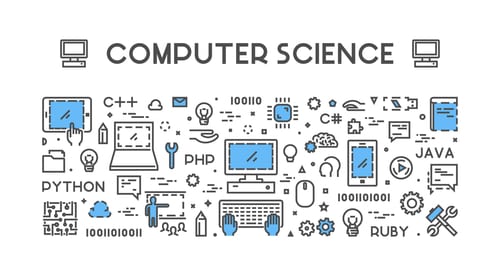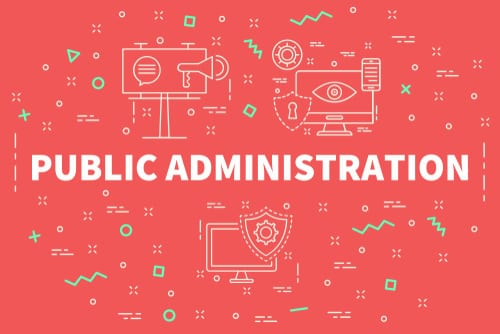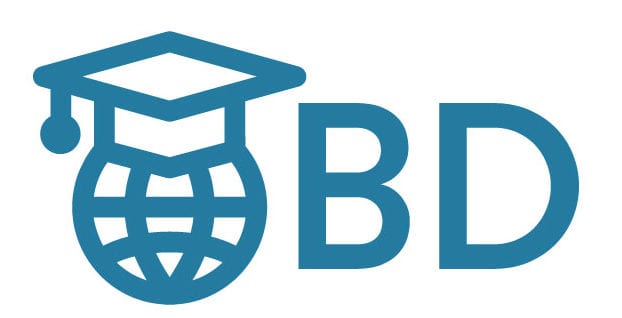A bachelor’s degree program is considered a four-year degree, which means that students are generally completing four years of full-time study to earn their bachelor’s degree. In those four years, students will complete 120 semester credits or the equivalent of 40 college courses.
A bachelor’s degree is a post-secondary undergraduate program. Generally, the term “college degree” meant a bachelor’s or traditional four-year degree program. Moreover, bachelor’s degrees are sometimes called baccalaureate degrees. The United States regionally-accredited liberal arts academic institutions primarily award bachelor’s degrees throughout the country.

Liberal Arts courses are mandatory for all kinds of bachelor’s degree programs. The majority of bachelor’s degree programs consist of general education or liberal arts courses such as critical thinking, English, History, Mathematics, and Psychology. Generally, only 30-36 credits or 10-12 courses will be included in the student’s major area of study.
The bachelor’s degree is a standard requirement for entry into several professional careers. Earning a bachelor’s degree can be a stepping stone to a more fulfilling career. In numerous cases, students cannot attend graduate school in teaching, medicine, or law studies unless they hold a bachelor’s degree.
With that said, students need a bachelor’s degree before admission to a master’s degree program to make way for even more fulfilling career opportunities.
Quick audio summary:
♦ Explore with ease everything you need to know about the Bachelor’s degree! ♦
When do Students Seek a Bachelor’s Degree Program?
Associate Degree VS. Bachelor’s Degree
Types of Bachelor’s Degree Programs
Bachelor’s Degree Program Learning Format
Bachelor’s Degree Earning Potential
Bachelor’s Degree Program Average Cost
Reasons Why Earning A Bachelor’s Degree Program Is Important
Statistics of Bachelor’s Degree Holders in the U.S.
Most Valuable Degree Programs and the Best Colleges

When do Students Seek a Bachelor’s Degree Program?
Students must seek a suitable bachelor’s degree program when they:
- Are aware that a Bachelor’s Degree Program is needed for their career
- Earn more than 60 semester credits or hold at least one Associate Degree
- Acknowledge that a Graduate or Professional Degree will be required for their professional endeavors.
Associate Degree VS. Bachelor’s Degree
While an associate degree program requires two years to complete, a bachelor’s degree takes four years for program completion.
A baccalaureate program aims to develop students not only as potential professionals but as a whole. It equips learners with the essential skills and knowledge in a specific field that will lead them to professional and middle-management positions. Required courses to earn a bachelor’s degree include general education in the liberal arts and specific required courses in a major concentration or specialization.

On the contrary, an associate degree generally prepares students for entry-level work with the basic skills and expertise required in a specific field. It enables students to complete general education courses through a two-year program for later transfer into a baccalaureate program.
Several traditional and online colleges, community colleges, junior colleges, and universities have 2+2 programs.
After completing the first two years of their four-year bachelor’s degree program, they will obtain their associate degree. They can continue their post-associate education in a larger university or college through an articulation agreement. This strategy is an easy and affordable bachelor’s degree process.

Types of Bachelor’s Degree Programs

There are numerous types of bachelor’s degree programs. However, a complete list of bachelor’s degrees and their specific majors and specializations would almost be infinite.
The three most common types of bachelor’s degrees include the following:
- Bachelor of Arts (BA Degree)
- Bachelor of Fine Arts (BFA Degree)
- Bachelor of Science (BS Degree)
Bachelor of Arts Degree Program
A Bachelor of Arts typically requires students to complete fewer concentration courses and to concentrate more on discovering liberal arts. These learners have a little more flexibility and freedom when it comes to customizing their education to meet their career goals and aspirations. The most popular majors include Art, English, Communication, Modern Languages, Music, and Theatre.
Bachelor of Science Degree Program
A Bachelor of Science Degree is less concentrated on exploration and more focused on a specific specialization or concentration. Bachelor of Science majors often focus specifically on the field of their major and are more career-focused. Bachelor programs in the medical fields are more likely to be Bachelor of Science degree programs.
The most common majors that comprise the Bachelor of Science degree list include:
- Biology
- Business
- Chemical Engineering
- Computer Science
- Economics
- Nursing
Bachelor of Fine Arts Degree Program
A Bachelor of Fine Arts Degree is another professional or vocational program. The objective of a BFA degree is for its graduates to pursue professions in the creative arts industry. These include actors, dancers, painters, singers, and sculptors, among other occupations.
Similar to the BS program, the primary difference between Bachelor of Arts (BA) and Bachelor of Fine Arts (BFA) programs is the tendency to concentrate more on their primary specialization than on general education requirements.
Other Bachelor’s Degree Programs Awarded by U.S. Colleges and Universities
- Bachelor of Accountancy
- Bachelor of Administrative Studies
- Bachelor of Applied Arts
- Bachelor of Applied Arts and Sciences
- Bachelor of Applied Science in Information Technology
- Bachelor of Architecture
- Bachelor of Aviation
- Bachelor of Business
- Bachelor of Business Administration
- Bachelor of Business Information Systems
- Bachelor of Business Science
- Bachelor of Commerce
- Bachelor of Design
- Bachelor of Divinity
- Bachelor of Economics
- Bachelor of Engineering
- Bachelor of Engineering Technology
- Bachelor of International Business Economics
- Bachelor of Kinesiology
- Bachelor of Management Studies
- Bachelor of Medical Biology
- Bachelor of Medical Science
- Bachelor of Music
- Bachelor of Music Education
- Bachelor of Philosophy
- Bachelor of Public Affairs and Policy Management
- Bachelor of Religious Studies
- Bachelor of Science in Business
- Bachelor of Technology
- Bachelor of Theology
- Bachelor of Tourism Studies
- Bachelor of Urban and Regional Planning
- International Business Economics
Bachelor’s Degree Program Learning Format
The duration or length of time to complete a bachelor’s degree program depends upon a student’s choice of their bachelor’s degree and the college or university they plan to enroll.
Programs differ from full-time, traditional, four-year options to accelerated online bachelor’s degree programs, which can be earned in two years. In addition, some students may pursue their degree on a part-time basis, which takes longer to complete.

Students who have previously completed several post-secondary courses may be approved for transfer credit programs. It reduces the time it takes to finish a four-year bachelor’s degree. Students with an associate degree may be eligible to enroll in an accelerated, 90-credit online bachelor’s degree program.
Furthermore, adult learners may have obtained prior higher education credits that may be transferred or have gained professional experience or completed workforce training programs that may be eligible for earned credits. Several higher education institutions enable students to test out of courses via recognized assessments such as DANTES Credit by Examination and College Level Examination Program (CLEP).
Students who have time commitment and motivation can explore distance learning programs that offer year-round classes as another alternative.
Bachelor’s Degree Earning Potential

Regarding academic reputation, the Bachelor of Arts (BA), Bachelor of Fine Arts (BFA), and Bachelor of Science (BS) degrees are all valued equally. The cost benefits differ in the kind of field in which a student enrolls. Bachelor of Science degree occupations such as engineering fields typically pay more than their Bachelor of Arts in Education or Arts counterparts.
Some of the lucrative careers, such as lawyers and physicians, need not only a bachelor’s degree program but also further schooling.
Will a Bachelor’s Degree Program guarantee steady employment? Not in the long run, but it does help candidates significantly raise their chances of landing a job. Even at times when the unemployment rate is high, the unemployment for individuals with a bachelor’s degree is lower by a few percentage points.
According to research conducted by Georgetown, college graduates with a bachelor’s degree make 84% more over a lifetime than those who have only obtained a high school diploma. The study noted that 72% of young adults aged 25-34 who hold a bachelor’s degree work full-time, according to the National Center for Education Statistics. According to a similar study, young professionals with undergraduate degrees versus young professionals with only a high school diploma made more than twice as much earnings.
A Bureau of Labor Statistics (BLS) annual “Education Pays” survey shows individuals with a bachelor’s degree earn a median wage of $1,432 per week. These bachelor’s degree holders also experienced a 2.2% unemployment rate.
In contrast, individuals with an associate degree ($1,005), some college but no degree ($935) and high school diploma (853) earned less in median weekly wages. These cohorts also experienced higher unemployment rates ranging between 4% (high school diploma) and 2.7% (associate degree).
The bottom line: Earning your bachelor’s degree pays off! Of course, the number of years in which you can recoup your financial investment and opportunity cost varies depending on your college major. Read on for more information about the college majors that are known for their faster returns on investment (i.e., shorter duration to recoup financial costs).
Bachelor’s Degree Program Average Cost
Tuition and fees for a bachelor’s program differ significantly from one academic institution to another academic institution. According to the College Board Trends in College Pricing 2022, the average published tuition and fee charges for full-time undergraduates in four-year degree programs for the 2022-2023 academic year are:
- Public schools in-state $10,950 (An increase of $190 from the previous year)
- Public schools out-of-state $28,240 (An increase of $620 from the previous year)
- Private nonprofit schools $39,400 ($1,330 higher than the previous year) (Private schools usually charge the same tuition and fees for undergraduate students regardless of their residency status)
Note that the abovementioned figures are for tuition and fees only. Undergraduate students must account for room and board, travel and incidental expenses, books and supplies and student loan interests, among other college-related costs. The average room and board for the academic year 2022-2023 ranged between $12,310 (public four-year in-state) and $$14,030 (private nonprofit).
In the same College Board report, in-state students in public schools can spend $27,940 in total costs per year, on average, while on-state students spend more at $45,240 per year; both figures are on the assumption of on-campus accommodations. Students living on-campus in private schools spend $57,570 on average.
Affordability factors include, but are not limited to, available financial aid, public vs. private academic institutions, students’ status as in-state or out-of-state residents, and the state in which students enroll.
Distance learning programs have specified rates that do not consider tuition fees on in-state or out-of-state status. However, these rates differ widely from school to school and program to program. To give an idea, the US News & World Report states that the average tuition in public online bachelor’s degree programs is $38,496 (in-state students) and $54,183 (out-of-state students), while it’s $60,593 in private schools. In the same report, the authors stated that scholarships and other financial aid opportunities are limited in online bachelor’s degree programs than in on-campus programs.
Financial aid opportunities immensely affect the total cost of a bachelor’s degree program. In the College Board Trends in College Pricing and Student Aid 2022 Full Report, the net cost of attendance after financial aid for full-time, in-state undergraduate students in public four-year schools is $19,250, while it’s $32,800 for their counterparts in private schools (academic year 2022-2023).
The bottom line: Always file your FAFSA even when you believe that you’re not qualified based on your family income! Your circumstances and FAFSA-related rules and regulations can change. You will also find plenty of financial aid opportunities offered by colleges and universities, scholarship organizations and foundations, and corporations.
Reasons Why Earning A Bachelor’s Degree Program Is Important

A bachelor’s degree program used to be every student’s target goal to stand out from other candidates in a tough job market.
As of 2015, one in three adults who obtained a four-year degree program considered it a common scenario in a pool of job aspirants with this level of educational attainment.
Does this indicate that a bachelor’s degree program is no longer significant? Is it even required in today’s era of start-up entrepreneurs and self-employed business owners? Is it a worthwhile investment despite a student loan debt may be involved? The answer will depend upon the student.
Their unique career aspirations and life goals will determine if a bachelor’s degree is suitable and worth obtaining. For most, earning a college degree is crucial to their success in today’s job market.
- Many Career Opportunities Need a Bachelor’s Degree
Several students have found that earning a bachelor’s degree is the only way to get started in entry-level career opportunities for some industries. STEM, business, and education sectors require their employees to showcase the type of commitment that comes from completing a four-year study.
While some jobs require some form of post-high school education, 75% of new jobs require a bachelor’s degree program. Even if students have completed a certificate or associate degree program, there is a far bigger world of career opportunities readily available to those who have advanced education in their respective fields.
- Obtaining a Bachelor’s Degree Program Prepares Students for a Particular Career
As the world evolves, the labor workforce evolves with it. STEM, healthcare, and education are three of the most rapidly evolving fields for a good reason: they transform so quickly that only the most accomplished candidates can perform the work. Earning a bachelor’s degree program will help them learn a set of skills and knowledge required to make a living in these areas of study.
- Candidates Who Earn a Bachelor’s Degree Program Earn a Lucrative Income
In the BLS 2022 Education Pays survey, the median annual salary for bachelor’s degree holders makes for a compelling case for earning a college degree. With 52 weeks in a year, the median annual salary for different levels of education is as follows:
- Less than a high school diploma $35,464
- With a high school diploma or GED equivalent $44,356
- With an associate degree $52,260
- With a bachelor’s degree $74,464
There’s a big difference between educational levels, with a bachelor’s degree delivering more than $22,200 in additional income per year over an associate degree. This is, of course, made with the assumption that individuals have to work for 52 weeks in a year, but with a higher unemployment rate among those with less than a bachelor’s degree in educational attainment, this may not be possible.
- Networking is Possible with a Bachelor’s Degree Program
In today’s modern world, creating and maintaining a professional network is vital to success. Certain factors of earning a degree, from internship programs to volunteering, are designed to assist students in meeting the people who can help them be successful in their careers.
When they complete their degrees and make their way into the industries, bachelor’s degree holders can expect a level of support from their professors and mentors that isn’t accessible anywhere else.
- A Bachelor’s Degree Program May be Required in Certain Locations
The US is a very distinct country, and it differs in the number of financial resources required to reside in each location. In addition to a wide variety in the cost of living between states, some places are more career-friendly to those with college degrees.
We must point out, nonetheless, that there are at least seven states – New Jersey, Maryland, Pennsylvania, North Carolina, Colorado, Utah and Alaska – that have removed the college degree requirement for employment purposes via law. This means that the majority of states still have a high preference for workers with college degrees – Delaware, for example, requires a college degree for 19% of its jobs, while Washington DC has a 32% college degree-only job market.
There’s also the trend that during recessionary times, such as during and in the aftermath of the COVID-19 pandemic, workers without college degrees are left struggling to find employment. According to BLS figures, the unemployment rate for workers with a high school diploma peaked at 17.6% during the pandemic – in contrast, it was 8.4% for workers with a college degree.
- A Bachelor’s Degree Program is an entry to Higher Goals
Have you planned to pursue a career as a head librarian, nurse, or physical therapist? These known jobs typically require a bachelor’s degree program as the stepping stone before pursuing a more advanced degree program.
Students might also need a bachelor’s degree before any master’s or doctorate program. Even if they are not sure about the rest of their career path, obtaining a bachelor’s degree program puts them ahead, even if they decide to pursue it later.
- Self-Growth Happens with a Bachelor’s Degree Program
Students who aren’t seeking the type of career that generally comes from a four-year program might be questioning the value of a baccalaureate program. There is more to the program than the paper; however, several students discovered the experience to be more fulfilling and personally rewarding as well.
On top of earning skills like time management, collaboration, and writing, there are several opportunities to enhance presentation skills and collaborate with students and professors, who will, later on, become part of the students’ valuable professional network.
- Bachelor’s Degree Holders are Reportedly “More Fulfilled”
Not all people will love their jobs; however, studies have shown that earning a four-year degree paves the way to a better overall attitude toward their professions. Several bachelor’s degree holders report being more satisfied with their jobs than those without a degree. Of those who admitted they were working on getting by, 42% were high school graduates compared to only 14% of college graduates.
A more significant number of bachelor’s degree holders are more likely to view their current profession as part of a path to something fulfilling rather than being seen as a dead-end career; only 57% of those with a high school diploma have the same positive outlook about where they are currently employed.
Studies have also pointed out the non-monetary benefits of college degrees. College graduates make better decisions about their health and enjoy more access to healthcare services, become more engaged citizens in their communities, and contribute to a stronger democracy, among others. Their sense of personal and professional fulfillment tends to be higher than those with less educational attainment, too.
- The Risks are Worth the Benefits
The cost of a bachelor’s degree program may be overwhelming, especially with several students on the news sharing student loans and not feeling like the labor workforce is friendly to their particular degree. While no one can justify that some degrees are not that easy to employ, several college graduates are finding the return on investment of a bachelor’s program to be positive.
In an Inside Higher Ed study, 93% of students consider a college degree to be of value in their lives, particularly in terms of financial benefits. About 80% of colleges and universities are also reported to provide a minimum economic return, and thus, a college degree is considered worth the costs, including the risks.
This trend remains steady among those who borrow money for school. Moreover, there are numerous programs available to help finance higher education, such as grants, tuition reimbursement programs, and scholarships, designed to help learners eliminate debt.
- A Bachelor’s Degree Program Increases Students’ Financial Stability
When it comes to advantages that create economic security, such as health insurance, sick leave, and retirement plans, there’s no doubt that they are popular among jobs that require a bachelor’s degree program. The statistics on poverty support the value of a college degree when it comes to more opportunities for financial stability and less risk for poverty. According to Statista, about 4.3% of people with at least a bachelor’s degree were living below the poverty line (2022). In contrast, it was 25.2% for individuals with a high school diploma (2021).
Statistics of Bachelor’s Degree Holders in the U.S.
In a Pew Research Center analysis, nearly 4 in 10 Americans in the 25 years-and-up bracket possess a bachelor’s degree or 37.9% of adults in the age bracket. Of these bachelor’s degree holders, 143.% also earned professional or graduate degrees. This means an increase of 7.5% from the 30.4% in 2011.
In terms of gender, there’s been a reversal, with more women in the 25 years-and-up bracket having earned at least a bachelor’s degree than their male counterparts – 39% versus 37%. Business degrees are still the most popular degrees among college graduates, followed by healthcare-related degrees. Military technologies and applied sciences, library science, and precision production are the least common.
The growing earnings gap between college degree holders and individuals with some college but no degree and high school diploma holders is also detailed in the Pew Research Center analysis. The majority of Americans also recognize the value of their college experience and degree, with 79% asserting that it was extremely or very useful in their personal and intellectual growth. Their doors of opportunities and their workplace-specific knowledge and skills development were also improved by their college experience and degree.
Most Valuable Degree Programs and the Best Colleges

Bachelor of Science in Naval Architecture and Marine Engineering

Naval Architecture and Marine Engineering is a field for those who wish to design and build ships and other marine vessels. It is a specialized field of engineering delivered at only about 14 academic institutions in the US. Graduates work in maritime safety, offshore drilling, shipbuilding and design, marine systems engineering, and technical consulting.
Naval Architects and Marine Engineers must obtain a minimum of a bachelor’s from an academic institution accredited by ABET. Undergraduate programs include courses in thermodynamics, mathematics, propulsion, physical science, hydrodynamics, ship design, and hydraulics.
Career Pathways: Naval Architects, Marine Engineers
Unemployment Rate: 1.6%
Average Income: $96,910
3 Best Colleges for Bachelor of Science in Naval Architecture and Marine Engineering
- The United States Merchant Marine Academy – Bachelor in Marine Engineering
- United States Naval Academy – Naval Architecture and Marine Engineering
- University of New Orleans – Bachelor of Science in Naval Architecture and Marine Engineering
Bachelor of Science in Nuclear Engineering

Nuclear Engineering is the most cohesive of the engineering disciplines. The several components of nuclear systems, such as nuclear fission reactors, fusion reactors, medical imaging, and ultrasensitive contraband detectors, must be studied, as well as how they are related to one another. Nuclear engineers are experts in the areas of materials science, thermodynamics, electronics, and physics.
The basics of one science field are generally using the same tools in solving complex problems in other areas of disciplines. An undergraduate program in nuclear science and engineering develops the fundamental aspects of nuclear processes- their radiation measurements, interactions, and productions. This program brings students to the design stage of nuclear-based systems security impacts, stressing social and health implications.
Career Pathways: Engineering Supervisor, Reactor Operator, Leading Petty Officer, Instructor, Nuclear Plant Operator, Work Center Supervisor, Nuclear Reactor Operator, Engineering Technician, Electronics Technician, Machinist Mate, Atomic Process Engineer, Reactor Projects Engineer, Nuclear Radiation Engineer, Radiation Engineer, Nuclear Steam Supply System Engineer
Unemployment Rate: 1.8%
Average Income: $122,480
3 Best Colleges for Bachelor of Science in Nuclear Engineering
- Massachusetts Institute of Technology or MIT – Bachelor of Science (BS) in Nuclear Science and Engineering
- Georgia Institute of Technology – Bachelor of Science or BS in Nuclear and Radiological Engineering
- University of California Berkeley – Bachelor of Science or BS in Nuclear Engineering
Bachelor of Science in Pharmacy, Pharmaceutical Sciences, and Administration

A Bachelor’s in Pharmaceutical Sciences is a four-year program that starts with a foundation of courses in basic sciences, namely physics, biology, and chemistry.
This program then progresses to more advanced courses in pharmaceutical sciences such as pharmacology, aspects of drug design and synthesis, toxicology, quality assurance, mechanisms of drug action, regulatory compliance, and dosage formulation. In addition, it trains learners for diverse roles/positions in academic, industrial, and other research facilities within the areas of commercialization, drug discovery, and development.
Career Pathways: Clinical Research Associate, Biomedical Researcher, Science Writer, Skin Care and Cosmetics, Medicines Adviser, Medical Science Liaison, Quality Control Chemist, Quality Assurance, Paints and Protective Coatings, Patent Attorney, Medical Chemist, Product Developer/Formulator, Sales and Marketing, Regulatory Affairs, Pharmaceutical Companies, Forensic Scientist
Unemployment Rate: 5.2%
Average Income: $132,750
3 Best Colleges for Bachelor of Science in Pharmacy, Pharmaceutical Sciences, and Administration
- Purdue University – Bachelor of Science (BS) in Pharmaceutical Sciences
- University of Southern California – Bachelor of Science in Pharmacology and Drug Development
- University of Michigan – Bachelor of Science in Pharmaceutical Sciences
Bachelor of Science in Electrical Engineering

A Bachelor of Science (BS) in Electrical Engineering Degree delivers a concrete foundation for students interested in electrical circuits and engineering, mathematics, and science. It prepares students for analysis and design in a wide range of electronics applications.
Electrical engineering graduates can become experts in thermodynamics, digital systems design, entertainment industries, design for communications, and defense sectors. In addition, they may seek employment in information theory or circuitry or gain specialization in digital systems design, quantum electronics, microwave and antenna engineering, or biomedical engineering. The program has concentrations in entertainment, thermodynamics, and digital systems design.
Career Pathways: Electrical Engineering Technician, Computer Programmer, Aerospace Engineer, Biomedical Engineer, Computer Engineer, Electrical Engineering Technologist, Electronics Engineer, Mechanical Engineer, Automotive Engineer, Oil and Gas Engineer, Medical Engineer
Unemployment Rate: 3.2%
Average Income: $104,610
3 Best Colleges for Bachelor of Science in Electrical Engineering
- University of Pennsylvania – Bachelor of Science (BS) in Electrical Engineering
- Duke University – Bachelor of Science (BS) in Electrical & Computer Engineering
- University of Notre Dame – Bachelor of Science (BS) in Electrical Engineering
Bachelor of Science in Aerospace Engineering

Students in Aerospace Engineering earn the practical experience required to understand aerodynamics, control systems design, heat transfer, and engine design. They participate in lectures, collaborate in classroom discussions, and spend a significant amount of resources experimenting with prototype testing, design, and construction.
Students seeking a career in aerospace engineering can benefit from the educational foundation and training provided in a bachelor’s in aerospace engineering.
Aerospace Engineering majors learn foundational concepts in engineering principles and applications, sciences, and mathematics. In addition, students learn to apply these concepts to the operation, design, and testing of missiles, spacecraft, aircraft, and other vehicles of flight. They complete coursework such as Aircraft Design, Aerodynamics, Fluid Mechanics, Thermodynamics, and Engine Design.
Career Pathways: Commercial Aerospace Engineer; Spacecraft Designer; Engineering, Science, and Data Processing Managers; Inspectors and Compliance Officers; Mechanical Engineers; Drafters
Unemployment Rate: 2.6%
Average Income: $126,880
3 Best Colleges for Bachelor of Science in Aerospace Engineering
- The University of Florida – Bachelor of Science (BS) in Aerospace Engineering
- University of Alabama – Bachelor of Science (BS) in Aerospace Engineering
- Stanford University – Bachelor of Science (BS) in Aeronautics and Astronautics Engineering
Bachelor of Science in Computer Engineering

A Bachelor of Science in Computer Engineering generally combines software-related courses in operating systems, programming languages, and networks with hardware-related components covering fiber optics, microprocessors, and memory components. The program focuses on the relationship between software systems and computer hardware.
Students are equipped to design efficient IT solutions and evaluate policies. It integrates formal coursework with hands-on learning, and students gain the essential skills and knowledge required for the field. Moreover, students generally complete projects and practical experiences, providing them the chance to immerse themselves in real-world scenarios.
Career Pathways: Computer Programmer, Mechanical Engineer, Electrical Engineer, Industrial Engineer, Computer Systems Analyst, Computer User Support Specialist, Web Developer, Computer Network Architect, Database Administrator, Information Security Analyst, Software Engineer, Systems Engineer, Research Assistant, Testing Engineer, Hardware Engineer, Digital Gaming Programmer
Unemployment Rate: 7.4%
Average Income: $132,360
3 Best Colleges for Bachelor of Science in Computer Engineering
- The University of Florida – BS or Bachelor of Science in Computer Engineering
- University of Pennsylvania – BS or Bachelor of Science in Computer Engineering
- Boston University – BS or Bachelor of Science in Computer Engineering
Bachelor of Science in Electrical Engineering Technology

Electrical Engineering is focused more on transmission, power generation, and storage. It is primarily concerned with devices and appliances that use electricity, as well as electricity applications that are utilized in control systems or signal processing. Individuals working in electrical and electronics engineering require analytical minds and inquiring, along with creativity.
Being skilled in computers and mathematics and detail-oriented is also desirable. Undergraduate programs educate students about electrical applications, electrical theory, electrical schematics, and the use of conventional equipment.
Career Pathways: Application Engineer, Computer Engineer, Controls Engineer, Electrical Engineer, Electronics Engineer, Energy Engineer, Fiber Optics Engineer, Illuminating Engineer, Integrated Circuit Layout Designer, Robotics Engineer, Sales Engineer, Software Engineer, Electrician, Electronics Technician, Field Service Technician, Maintenance Technician
Unemployment Rate: 1.9%
Average Income: $104,610
3 Best Colleges for Bachelor of Science in Electrical Engineering Technology
- Pennsylvania State University – Bachelor of Science (BS) in Electrical Engineering Technology
- Excelsior College – Bachelor of Science (BS) in Electrical Engineering Technology
- Grand Canyon – Bachelor of Science (BS) in Electrical Engineering Technology
Bachelor of Science in Material Sciences

The Bachelor of Science in Material Sciences aims to develop in each student an in-depth understanding of the structure, properties, service behavior, and processing of engineering materials, including ceramic, composite, metallic, and polymeric materials. This understanding covers both improvements of existing materials and the development of new materials to maximize manufactured products.
Students learn about the structure of a variety of compounds and elements. The study subjects such as crystallography, synthesis, and bonding, as well as learn how concepts such as kinetics and thermodynamics impact the characteristics of matter. In addition, they generally spend time in laboratory settings to test properties such as corrosion resistance, ductility, hardness, and tensile strength.
Career Pathways: Technical Sales Engineer, CAD Technician, Research Scientist, Design Engineer, Product/Process Development Scientist, Materials Engineer, Metallurgist, Process Engineer, Teaching Assistant, Researcher, Research Associate, Graduate Research Assistant
Unemployment Rate: 2.6%
Average Income: $100,140
3 Best Colleges for Bachelor of Science in Material Sciences
- Northwestern University – BS or Bachelor of Science in Materials Science and Engineering
- University of Wisconsin – BS or Bachelor of Science in Materials Science and Engineering
- The Illinois Institute of Technology –BS or Bachelor of Science in Materials Science and Engineering
Bachelor of Science in General Engineering

A Bachelor of Science in General Engineering program generally qualifies students for entry-level positions in engineering disciplines such as mechatronics and bioengineering, as well as offering a path for further study. These programs need a high school diploma or GED to enroll.
Students in a bachelor’s degree program get an understanding of the fundamentals of engineering through classes in physical sciences and mathematics.
Their coursework might include studies in topics such as technical communications, thermodynamics, and computing. Students study theoretical and practical skills in mathematics and physical sciences to prepare them to assume several roles in the industry.
The General Engineering program requires courses that address engineering sciences together with logic, problem-solving skills, and critical thinking skills to design solutions to technical problems.
Career Pathways: Civil Engineer, Electrical Engineer, Environmental Engineer, Mechanical Engineer, Nuclear Engineer, Drafter, Aerospace Engineering and Operations Technician, Electrical and Electronics Engineering Technician, Electro-Mechanical Technician, Environmental Engineering Technician, Environmental Science and Protection Technician, Industrial Engineering Technician, Logistician, Machinist and Tool and Die Maker, Mechanical Engineering Technician
Unemployment Rate: 1.9%
Average Income: $100,640
2 Best Colleges for Bachelor of Science in General Engineering
- Vanderbilt University – Bachelor of Science in General Engineering
- East Tennessee State University – Bachelor of Science in General Engineering
Bachelor of Science in Applied Mathematics

A Bachelor of Science in Applied Mathematics offers learners the knowledge essential to apply mathematical ideas and techniques to problems that arise in science or engineering. It is expected that an individual receiving a BS in Applied Mathematics will have the background for suitable employment in the industries.
Students in Applied Mathematics provide ample opportunity to create a portfolio of courses that will satisfy both intellectual aspects and career preparation.
A wide range of courses are delivered with strengths in contemporary topics in applied mathematics, organized under four subject headings: discrete applied mathematics, applied analysis, stochastics, and computational mathematics. If desired, students can focus on one of the specializations offered by a specific college or university.
Career Pathways: Mathematician, Actuary, Civil Engineer, Computer Programmer, Computer Systems Analyst, Database Administrator, Financial Analyst, Economist, Market Research Analyst, Logistician, Survey Researcher, Mechanical Engineer, Statistician, Nuclear Engineer, Post-Secondary Teacher, Operations Research Analyst, Physicists and Astronomer, Math Tutor, Research Analyst, Business Analyst, Finance Analyst, Quantitative Analyst, Teaching Assistant, Research Assistant
Unemployment Rate: 1.5%
Average Income: $113,691
3 Best Colleges for Bachelor of Science in Applied Mathematics
- Washington University in St. Louis – BS or Bachelor of Science in Applied Mathematics
- Wright State University – Bachelor of Science (BS) in Mathematics
- University of Pittsburgh – Bachelor of Science (BS) in Mathematics
Bachelor of Science in Mechanical Engineering

A Bachelor of Science in Mechanical Engineering trains students in the maintenance, development, research, and manufacturing of mechanical systems. It includes class projects as well as education assignments/cooperative work or even internships.
The program is designed to be finished in four years, but some learners need five years due to the extensive work requirements. In this program, students learn to troubleshoot, design, test, and repair industrial equipment, vehicles, instruments, and appliances.
Applicants must be holders of a high school diploma or GED certificate for general admission requirements, but some of these programs need prerequisite college courses in mathematics, physics, and chemistry.
Graduates of the Mechanical Engineering program who deliver their services to the public must obtain a license, and students must ensure that they are enrolling in a mechanical engineering program that is Accreditation Board for Engineering and Technology-accredited.
Career Pathways: Aerospace Engineer, Nuclear Engineer, Automotive Engineer, Mechanical Engineer, CAD Technician, Maintenance Engineer, Contracting Civil Engineer, Control and Instrumentation Engineer, Electrical Engineer, Architectural and Engineering Manager, Materials Engineer, Petroleum Engineer, Computer Engineer, Computer Programmer, Sales Engineer, Mechanical Drafter
Unemployment Rate: 3.4%
Average Income: $96,310
3 Best Colleges for Bachelor of Science in Mechanical Engineering
- University of Pennsylvania – Bachelor of Science (BS) in Mechanical Engineering and Applied Mechanics
- Duke University – Bachelor of Science (BS) in Mechanical Engineering
- The University of Florida – Bachelor of Science (BS) in Mechanical Engineering
Bachelor of Science in Computer Science

A Bachelor of Science in Computer Science concentrates on the concepts and techniques utilized in the design and development of advanced software systems. Students will explore the fundamental underpinnings of computer science, its software engineering techniques, algorithms, operating systems, and programming languages.
Students can also choose from a rich set of electives offered by a specific college or university, such as computer architecture, computer graphics, computer networks, data science, database systems, and artificial intelligence. As with the introductory courses, these advanced courses integrate hands-on learning by doing.
Some universities or colleges offer a generous amount of free electives that allow students to combine study in computer science with another study in a different field by taking a well-structured specialized minor in another area of discipline.
Career Pathways: Computer and Information Research Scientist, Computer Support Specialist, Electrical Engineer, Graphic Designer, Information Security Analyst, Mathematician, Operations Research Analyst, Software Developer, Statistician, Network and Computer Systems Administrator
Unemployment Rate: 7.8%
Average Income: $127,271
3 Best Colleges for Bachelor of Science in Computer Science
- Regent University – Bachelor of Science (BS) in Computer Science
- Keiser University – Bachelor of Science (BS) in Computer Information Systems
- University of Pennsylvania – Bachelor of Science (BS) in Computer Science
Bachelor of Science in Civil Engineering

An undergraduate study of Civil Engineering covers the basic engineering principles used to design public sanitation projects, roads, dams, bridges, and other infrastructures. Furthermore, a bachelor’s degree in civil engineering addresses building materials and construction management. Learners may learn about materials science, hazardous waste management, soil composition, surveying, and structural design.
The program offers students writing, mathematical, and calculus skills in the field. They learn engineering formulas for calculating the amount of stress on an infrastructure and the design tolerances to withstand external or environmental factors/conditions. Some programs emphasize ecological topics such as hazardous materials, wastewater handling, and soil composition. Graduates of the civil engineering program will need to pass licensure examinations to provide engineering services to the public.
Career Pathways: Architectural Engineer, Bridge Engineer, Construction Engineer, Facilities Engineer, Transportation Engineer, Geotechnical Engineer, Structural Engineer, Research Hydraulic Engineer, Hydrographic Engineer, Highway Engineer, Urban and Regional Planner, Construction Manager, Civil Engineering Technician, Architectural and Engineering Manager
Unemployment Rate: 3.5%
Average Income: $89,940
3 Best Colleges for Bachelor of Science in Civil Engineering
- University of Notre Dame – Bachelor of Science (BS) in Civil Engineering
- Vanderbilt University – Bachelor of Engineering (BS) in Civil Engineering
- The University of Florida – Bachelor of Science (BS) in Civil Engineering
Bachelor of Science in Chemical Engineering

A Bachelor of Science in Chemical Engineering prepares students for entry-level positions in research, development, and engineering. These programs generally include tremendous amounts of coursework in science and mathematics and laboratory experience. This undergraduate degree provides students with broad, introductory training in the field. They learn to describe and comprehend molecular to macroscopic transformations and other complex phenomena.
While some programs are explicitly designed to prepare learners for further studies, the majority include practical training and laboratory experience for students interested in pursuing a career immediately after graduation. Coursework in a BS in Chemical Engineering program covers multiple disciplines, including biology, chemistry, mathematics, and physics.
Courses that are generally required include Chemical Engineering Laboratory, Thermodynamics and Kinetics, Introduction to Chemical Engineering, General Biochemistry, Fluid Mechanics, and Organic Chemistry.
Career Pathways: Chemical Engineer, Product/Process Development Scientist, Energy Engineer, Petroleum Engineer, Nuclear Engineer, Process Engineer, Absorption and Adsorption Engineer, Refinery Process Engineer, Chemical Process Engineer, Polymerization Engineer, Chemical Research Engineer, Plastics Engineer, Oxidation Engineer, Fuel Engineer, Material Scientist, Biomedical Engineer, Chemical Technician, Product Safety Engineer
Unemployment Rate: 2.5%
Average Income: $106,260
3 Best Colleges for Bachelor of Science in Chemical Engineering
- University of Texas at Austin – BS or Bachelor of Science in Chemical Engineering
- University of California Berkeley – BS or Bachelor of Science in Chemical Engineering
- The Illinois Institute of Technology – BS or Bachelor of Science in Chemical Engineering
Bachelor of Science in Finance

A Bachelor of Science in Finance is designed to deliver students with the analytical, conceptual, and quantitative skills required to manage financial departments for banks, insurance firms, corporations, and other organizations. Some of the typical prerequisites include completion of 2-year business and math courses as well as basic competency with computer software and technology.
Students learn the fundamentals of financial planning and managing an investment portfolio and are also expected to gain comprehension of risk management, tax laws, insurance, and tax regulations. They can specialize in financial planning and investment or financial analysis, and internship programs or hands-on experience may also be mandatory.
A bachelor’s degree in finance has core courses that cover basic principles of economics, while additional coursework in financial planning might consist of more in-depth topics related to risk management and portfolio creation. This finance program requires learners to complete an internship or even a hands-on learning program that requires them to manage an investment fund or financial portfolio.
Career Pathways: Financial Planner, Financial Analyst, Investor Relations Associate, Budget Analyst, Actuary, Accountant, Credit Analyst, Attorney, Commercial Real Estate Agent, Business Teacher, Banker
Unemployment Rate: 4.1%
Average Income: $96,220
3 Best Colleges for Bachelor of Science in Finance
- Pennsylvania State University – Bachelor of Science (BS) in Finance
- Purdue University – Bachelor of Science in Finance
- West Virginia University – Bachelor of Science (BS) in Business Administration- Finance
Bachelor of Science in Mathematics

A Bachelor of Science in Mathematics program provides a solid background in mathematics while introducing undergraduates to the field of education. After earning this degree, graduates are prepared to join a graduate licensure program to earn their teaching credentials.
The program consists of a wide range of courses meant to enhance students’ mathematical content knowledge, from algebra to upper-level mathematics. Learners take two courses that enable them a deeper understanding of specific mathematical topics as well as a capstone requirement that trains high school mathematics from an advanced viewpoint.
Moreover, students complete other courses with accompanying field experiences developed to provide them with a concrete foundation in the educational process. During each field experience, each learner spends time in middle or high school math classrooms observing instructors, learning how students think about and comprehend mathematics, and interacting with students.
Career Pathways: Acoustic Consultant, Statistician, Actuarial Analyst, Sound Engineer, Actuary, Software Engineer, Astronomer, Secondary School Teacher, Chartered Accountant, Research Scientist, Chartered Certified Accountant, Investment Analyst, Data Analyst, Data Scientist, Computer Systems Analyst, Survey Researcher, Logistician, Personal Financial Advisor
Unemployment Rate: 6.0%
Average Income: $79,000
3 Best Colleges for Bachelor of Science in Mathematics
- The University of Florida – Bachelor of Science/Bachelor of Arts in Mathematics
- American University – Bachelor of Science in Mathematics
- Southern New Hampshire University – Bachelor of Arts (BA) in Mathematics
Bachelor of Science in Nursing

An undergraduate degree in Nursing prepares students to become registered nurses (RN), educating them to communicate with patients and health professionals, perform different medical procedures, assess health conditions, and assist physicians.
The program provides graduates with the essential knowledge and skills required to take the national RN licensing examinations. It includes both hands-on clinical learning and lecture-based classes. Some academic institutions accept first-year college students with a high school diploma in the BSN program.
Several schools require students to complete lower-level or core curriculum courses before admission to the program. However, the majority of the classes in nursing are grounded in the liberal arts and biological sciences.
Furthermore, nursing majors participate in clinical training where they work in healthcare institutions under the management or supervision of a licensed nurse. Some of their classes include Anatomy, Chemistry, Statistics, Microbiology, Pharmacology, and Psychology.
Career Pathways: Licensed Practical Nurse, Licensed Vocational Nurse, Registered Nurse, Neonatal Nurse, Nurse Practitioner, Travel Nurse, Agency Nurse, Nurse Midwife, Corporate Nurse, Nurse Anesthetic, School Nurse, Case Management Nurse, Research Nurse, Forensic Nurse, Legal Nurse, Informatics Nurse Specialist, Pediatric Nurse, Nurse Manager, Charge Nurse, Director of Nursing
Unemployment Rate: 1.7%
Average Income: $81,220
3 Best Colleges for Bachelor of Science in Nursing
- University of Pittsburgh – Bachelor of Science (BS) in Nursing
- University of Michigan – Bachelor of Science (BS) in Nursing
- The University of Washington – Bachelor of Science (BS) in Nursing
Bachelor of Science in Information Sciences

A Bachelor of Science in Information Sciences is one of the most common programs throughout different higher-learning institutions. Candidates should be holders of a high school diploma or its equivalent to be admitted to the program. Some universities or colleges may offer their information sciences programs through their business school, with classes aimed toward how businesses utilize these systems.
Other academic institutions may deliver the program through their engineering school and emphasize technical subjects such as software applications, computer programming, and databases. In some cases, internship completion is a requirement for graduation.
An undergraduate degree in information sciences prepares students for a career in a wide variety of computer science-related fields. It typically offers both lecture-based classroom experience as well as practical experience through internship programs or work-study programs.
Courses teach students computing industry trends, and they participate in faculty-led research assignments. Core courses may include Accounting, Computer Networking, C++ Programming, Computer Operating Systems, and Systems Analysis.
Career Pathways: Software Engineer, Programmer Analyst, Technical Support Specialist, Information Technology Intern, Assistant Manager, Business Analyst, Systems Engineer, Systems Administrator, Research Assistant, Data Analyst, Web Content Analyst, Digital Archivist, Corporate Taxonomist, UX Designer
Unemployment Rate: 5.6%
Average Income: $73,406
3 Best Colleges for Bachelor of Science in Information Sciences
- University of South Carolina – Bachelor of Information Sciences
- National Louis University – Bachelor of Science in Computer Sciences and Information Systems
- Pennsylvania State University – Bachelor of Science in Information Sciences and Technology
Bachelor of Science in Business Economics

A Bachelor of Science in Business Economics provides students with fundamental knowledge of the discipline. This business economics program consists of mathematics coursework as well as general education requirements. Students must show their ACT or SAT scores and obtain a high school diploma or GED for admission to the program.
Students learn about probability, financial institutions, and investment markets. Several academic institutions have learners pursuing a BS in Economics to complete several mathematics classes such as algebra, calculus, and statistics.
This program will have students complete courses in different social sciences, such as psychology, geography, and sociology. Some of the core courses include Economic Development, Healthcare Economics, Modern American Capitalism, Regulated Industries, and Urban Economics.
Career Pathways: Business Analyst, Market Analyst, Bank Manager, Risk Manager, Market Research Specialist, Insurance Underwriter, Investment Analyst, Stock Broker, Director of Finance
Unemployment Rate: 3.7%
Average Income: $72,447
3 Best Colleges for Bachelor of Science in Business Economics
- State University of New York Cortland – Bachelor of Science in Business Economics
- Weber State University – Bachelor of Science (BS) in Business Economics
- The University of Alabama at Birmingham – Bachelor of Economics
Bachelor of Economics

A Bachelor of Economics is a four-year academic program in the social sciences field of commerce and consists of the study of econometrics, microeconomics, economic statistics, macroeconomics, political economy, and the history of economics.
Some academic institutions offer undergraduate degree programs in economics that provide students the opportunity to specialize in a specific area of economics, including econometrics, agricultural economics, financial economics, environmental and resource economics, and political economy.
Students are encouraged to think in analytical terms and create business decisions based on the projected economic outcome or status. They typically earn 120 credits for the successful completion of the program. Practical work experience might be gained through internship programs, which are sometimes integrated into the curriculum.
Applicants to the economics program must have at least a high school diploma or GED equivalent for admission. Statistics, communications, and mathematics are some of the required courses in the program. Economics majors also complete the featured courses such as Social Science, Environmental Economics, Development, Progression and Trade, Economics in the Public Sector, and Research Economics.
Career Pathways: Account Executive, Analyst, Assistant Manager, Business Analyst, Sales Representative, Project Manager, Server, Manager, Finance Intern, Account Manager, Sales Manager, Finance Analyst, Marketing Intern, General Manager, Office Assistant, Store Manager, Office Manager, Staff Accountant, Operations Manager
Unemployment Rate: 2.2%
Average Income: $113,940
3 Best Colleges for Bachelor of Economics
- Lamar University – Bachelor of Economics
- Jackson State University – Bachelor of Economics
- Grambling State University – Bachelor of Economics
Bachelor of Science in Accounting

Learners who wish to become Certified Public Accountants (CPAs) must complete a year of additional accounting coursework. Students with a high school diploma or GED and high ACT or SAT scores may be admitted to the program. The program provides students with a theoretical and fundamental understanding of how accounting principles work within the industries.
Some academic institutions encourage students to gain practical experience through internship opportunities. Core courses include Business Ethics, Financial Accounting, Federal Income Taxation, Marketing Fundamentals, and Operations Management.
Career Pathways: Public Accountant, Tax Accountant, Forensic Accountant, Financial Accountant, Managerial Accountant, Financial Planner, Internal Auditor, Government Accountant, Accounting Information Systems Auditor
Unemployment Rate: 3.7%
Average Income: $94,153
3 Best Colleges for Bachelor of Science in Accounting
- The University of Phoenix – Bachelor of Science (BS) in Accounting
- Stratford University – Bachelor of Science (BS) in Accounting
- The University of Minnesota – Bachelor of Science (BS) in Accounting
Bachelor of Science in Applied Physics

A Bachelor of Science in Applied Physics covers the history of physics education and theoretical foundations of physics. The program educates students to conduct physics research and analyze the results through laboratory experimentation. Concentrations include astrophysics, biophysics, and quantum physics.
Undergraduate majors must have a high school diploma or GED requirement and be skilled in the areas of mathematics, physical sciences, and analytical thinking. A BS in Applied Physics has classes that discuss topics in natural sciences, mathematics, scientific research methodology, and statistics. Courses in the program are generally interdisciplinary since the study of physics applies to numerous fields.
Students must also complete hands-on laboratory exercises for the successful completion of the program. Core courses include Astrophysics, Analytical Mathematics, Thermal Physics, Theoretical Physics, History of Physics, and Quantum Physics.
Career Pathways: Aeronautical Engineer, Sustainability Specialist, Biophysicist, Physicist, Environmental Research Analyst, Nuclear Engineer
Unemployment Rate: 6.8%
Average Income: $98,670
3 Best Colleges for Bachelor of Science in Applied Physics
- Illinois Institute of Technology – BS or Bachelor of Science in Applied Physics
- New Jersey Institute of Technology – BS or Bachelor of Science in Applied Physics
- Georgia Institute of Technology – BS or Bachelor of Science in Applied Physics
Bachelor of Science in Public Administration

A Bachelor of Science in Public Administration program provides students with a broad liberal arts study with an emphasis on developing management skills. Students learn to run establishments and manage policy administration and development. They gain practical experience through required or optional internship opportunities. In addition, they can explore how government agencies and nonprofit organizations operate.
Students study quantitative and qualitative analysis, budgetary processes, laws related to public administration, and organizational design. Candidates must have a high school diploma or its equivalent for admission into the program.
Classes include database management, law, statistics, public speaking, accounting, and grant writing. Core courses include Environmental Management, Economic Development, Public Policy Analysis, Governance and Bureaucracy, and Government Finance.
Career Pathways: Fed Career, Civil Service, Education Administrators, Administrative Service Manager, Public Administration Consultant, Executive Director, Director of Development, Program Analyst, Program Director, City Manager, Mayor, Public Service Employees Network, Interns, Foreign Service Officer, Iraq Transition Assistance Office, Case Manager, Housing Specialist, Research Associate, Field Examiner, Urban Planner, Budget Analyst, US Secretary, Association Leader
Unemployment Rate: 4.6%
Average Income: $65,091
Best College for Bachelor of Science in Public Administration
- The University of Phoenix – Bachelor of Science (BS) in Public Administration
Bachelor of Arts in Communications

Students who are interested in advertising, publishing, public relations, or broadcasting may pursue a communications studies degree program. A bachelor’s degree in communications provides students the opportunity to learn how to utilize telecommunications software, and they discover different aspects of live-broadcast production.
Program concentrations include journalism, public relations, broadcasting, film or video creation, and human relations. Only applicants with a high school diploma or its equivalent may be successfully admitted to the program. A communications program prepares learners to defend arguments verbally and non-verbally, to apply interpersonal communication skills in culturally diverse societies, and to utilize communications technologies such as e-mail and telecommunications software.
Communications courses consist of a wide variety of subjects, from marketing techniques in advertising to production in live broadcasting. The core courses include Articulation, Interpretation, Media Industry Studies, Rhetoric, and Socialization.
Career Pathways: Public Relations Specialist, Meeting/Event Planner, College Alumni and Development Officer, Media Planner, Social Media Manager, Human Resource Specialist, Business Reporter, Health Educator, Brand Manager, Sales Representative, Broadcast News Analyst, Radio Broadcaster, Fundraising Manager, Promotions Manager, Writer, Art Director, Travel Agent, Survey Researcher
Unemployment Rate: 6.3%
Average Income: $72,776
3 Best Colleges for Bachelor of Arts in Communications
- Thomas Edison State University – Bachelor of Arts (BA) in Communications
- Stanford University – Bachelor of Arts (BA) in Communication
- Southeastern Louisiana University – Bachelor of Arts (BA) in Communication
Bachelor of Arts in Psychology

A Bachelor of Arts in Psychology program helps students learn about fundamental concepts, tactics, strategies, and theories that apply to human behavior. They also earn training in social sciences, natural sciences, and humanities.
The psychology program covers numerous areas of study, such as abnormal psychology, developmental psychology, and physiological psychology. Some academic institutions offer concentrations in a relevant field, such as organizational psychology or human development.
Psychology majors must engage in research work and participate in internship programs or hands-on activities. Students interested in applying to a four-year BA in Psychology program need to have a high school diploma or GED requirement. The program is meant to help students gain the skills for entry-level work in social or human services agencies and prepare them for graduate studies.
It typically offers education in human behavior and related sciences, together with core psychology coursework. Sample courses include Child Development, Cognitive Psychology, Personality Theories, Perception, and Psychological Research Methods.
Career Pathways: Psychometrist/Clinician, Substance Abuse Counselor, Psychiatric Technician, Human Resource Personnel, Marriage and Family Therapist, Clinical Psychologist, Experimental Psychologist, Forensic Psychologist, Sports Psychologist, I-O Psychologist, School Counselors, Educational Psychologist, Psychiatrist, Mental Health Counselor, Social Worker, Career Counselor, Survey Researcher, Social and Community Service Manager
Unemployment Rate: 7.3%
Average Income: $84,374
3 Best Colleges for Bachelor of Arts in Psychology
- Northwest University – BA or Bachelor of Arts in Psychology
- Concordia University, St. Paul – BA or Bachelor of Arts in Psychology
- Florida International University – BA or Bachelor of Arts in Psychology
What are the top 10 reasons for earning a Bachelor’s degree?
- Knowledge: A Bachelor’s degree gives you a broad range of knowledge applicable to many different areas.
- Higher Earning Potential: On average, people with a Bachelor’s degree earn more than those with a high school diploma.
- Improved Job Prospects: With a Bachelor’s degree, you have a better chance of getting hired for higher-level positions.
- Job Security: A Bachelor’s degree is becoming increasingly necessary to get a well-paying job and remain competitive in the job market.
- Increased Opportunities: A Bachelor’s degree opens up more opportunities for career advancements, such as supervisory and managerial roles.
- Personal Development: Pursuing a Bachelor’s degree can lead to personal growth and give you a better understanding of the world.
- Networking: Going to college provides an opportunity to make connections with people who could help you in the future.
- Flexibility: A Bachelor’s degree can make it easier to switch between careers or industries.
- Pride: Earning a Bachelor’s degree is a great accomplishment you can take pride in for the rest of your life.
- Higher Education: Having a Bachelor’s degree makes it easier to pursue a master’s or doctorate in the future.
